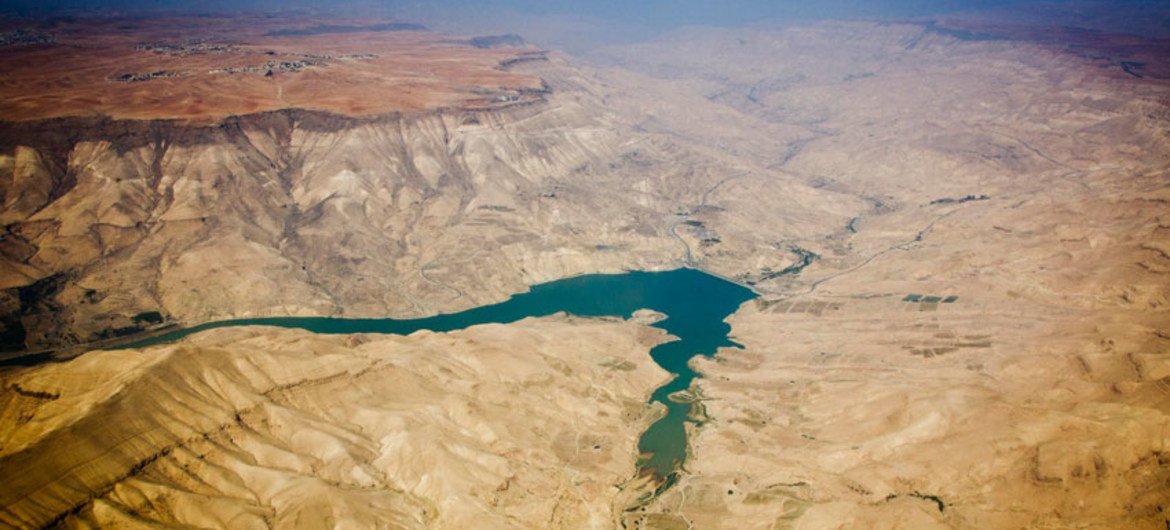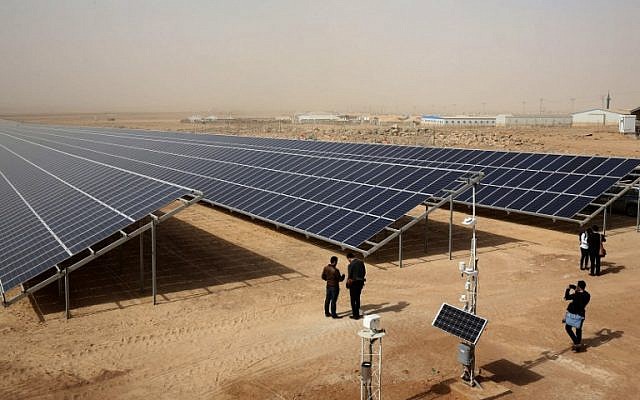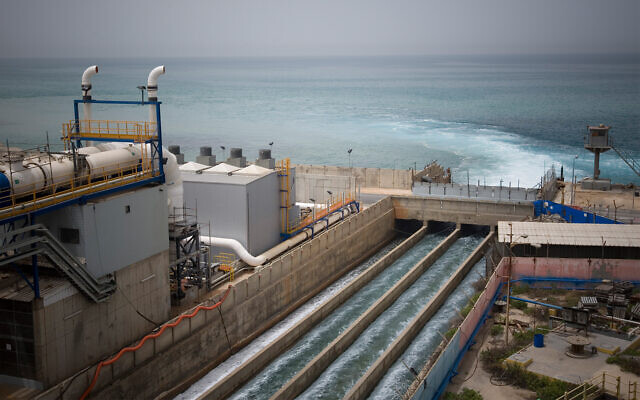Problems
Jordan's water crisis
Jordan is facing a real environmental catastrophe - a hotbed of drought is located in the territory of the country. Environmentalists are alarmed by the fact that Jordan's reservoirs have recently dried up, with only one-fifth of them filled with water. Experts also say that the tributary of the Jordan River has become shallow. According to the World Natural Resources Institute, Jordan, along with Qatar, Lebanon, Iran, and Israel, is among the states most vulnerable to water shortages. For the past decades, Jordan has been able to cover its drinking water needs with underground reservoirs. But this does not solve the problem: ten of the country's twelve reservoirs have now fallen to critically low levels.
Climate change as a cause of drought in Jordan
The Yarmouk River used to be an important source of fresh water in the north of Jordan. Now it has become a small stream. The reservoirs have a record low water level of only 20% of normal. According to recent studies, Jordan receives less and less rain during the rainy season. The climate is getting hotter and drier. If this situation continues, by the year 2100 there will be one-third less rainfall. Extreme weather conditions pose a particular threat to Jordan. While in the 1980s and 1990s, there were periods of drought every 15-20 years, today they occur almost every three years, which increases the pressure on the country's water reserves. Meanwhile, Jordan's drinking water shortage is about 500 million cubic meters. The country's population at times has to make do with less than 40 liters of water a day. By comparison, per capita, water consumption in Germany is about 120 liters per day. Since the 2000s, the calculations of Jordan's remaining drinking water reserves have had to be constantly revised downwards. Experts estimate that they will be exhausted between 2030 and 2050. Although these trends have been known for a long time, they, and the corresponding implications for security policy, have not been realized or ignored. Middle Eastern states have been reluctant to address climate issues at the multilateral level. Environmental, climate, and water policies have always been seen as a purely national task, with local populations being the first to suffer.
Authorities' Reaction
The government remains hostile to private and scientific climate protection initiatives. As soon as environmental protection measures begin to concern the low-environmental infrastructure projects of parastatal enterprises, the willingness to deal with climate change disappears. Climate change hits mostly the rural population, as well as the economically and socially disadvantaged segments of the people, at first. As a result, there is a growing urbanization trend in the Near and Middle East. At the same time, slums and poor quarters have emerged in the cities. Both contribute to the piling up of various problems that have already aggravated the last decade's conflicts.
Gallery
3Timelines
2022
November 08
Israel, Jordan, and UAE sign a new MOU on a deal to swap solar energy for desalinated water. The agreement declares ‘positive potential prospects’ of projects shown in feasibility studies. The latest document states that feasibility studies for each of the projects have been ongoing and the parties affirm that both Prosperity Green (a 600 MW capacity solar plant with storage to be built in Jordan) and Prosperity Blue (the export to Jordan of 200 million cubic meters of desalinated water per year) have been shown to have “positive potential prospects.” The agreement will see Israel purchase solar power from the Jordan-based facility, which will be constructed by an Emirati firm, and Jordan purchase water from an Israeli site to be constructed along the Mediterranean coast. Jordan is one of the world’s most water-deficient nations and its cooperation on water with Israel dates back to before the two established formal relations. The nation, nearly landlocked, faces dire water prospects as its population expands and temperatures rise. Israel is also a hot, dry country, but its advanced desalination technology has opened opportunities for selling freshwater. The UN’s COP27 climate summit kicked in Egypt with warnings against backsliding on efforts to cut emissions and calls for rich nations to compensate poor countries after a year of extreme weather disasters.
August 19
Environmentalists are trying to save the sacred Jordan River from shoaling. The stream has become shallow due to drought, water withdrawal, and pollution. A dam has blocked the outflow from the Sea of Galilee. In addition, Jordan is catastrophically polluted by sewage. There is a possibility that the Biblical river will dry up altogether. To save Jordan ecologists have developed emergency measures. It is necessary to build a pipeline, a reservoir, and dams. And special pumps will pump water into the river from the Sea of Galilee.
2021
April 20
Jordan could become the first country to lose all sources of fresh water, a local official said. "The situation here is bleak," said water ministry official Omar Salameh. - Without tremendous support for development projects, Jordan will not have the resources to provide water." According to the World Resources Institute, countries in the Middle East lead the list of countries with the most significant water scarcity. According to a 2017 World Bank report, the region is also a "global hotspot of unsustainable water use," and salt discharges further impair any available water from desalination and pollution from untreated wastewater. Poor water quality costs governments 2.5% of their gross domestic product.
2018
January 02
Jordan currently uses 160% more water than nature returns in the form of precipitation. The way out of this situation is the desalination of seawater. However, its solution is hampered by the unstable situation in the region, because many projects depend on the cooperation of Jordan, Israel, Palestine, Syria, and Lebanon, which share water resources. According to experts, Iran, Lebanon, Morocco, and Syria will face an acute water shortage shortly due to the lack of rain.
2017
October 31
Jordan's ongoing severe drought has created a serious water shortage problem, with most reservoirs nearly exhausted, AP reported. "We will face an even more serious problem if we don't take the necessary measures in time," said Ali Subah of Jordan's water ministry. AP notes that recent studies show that climate change has seriously affected Jordan's environmental situation. Meteorologists note that the weather has become harsh and hot. One group of Jordanian forecasters estimates that in 100 years the amount of rainfall in the country could decrease by 30 percent.
2014
February 26
ProAgro has learned that Jordan's crops have been hit by a severe drought. This is reported by the government of the country. According to their data, during the winter only 31% of normal rainfall fell in the Kingdom, and the water level in reservoirs dropped to 43% of the normal volume. The lack of moisture significantly slows the growing season of wheat and threatens the country with a significant harvest shortfall in 2014, although it is too early to unequivocally assess the damage caused to crops.


